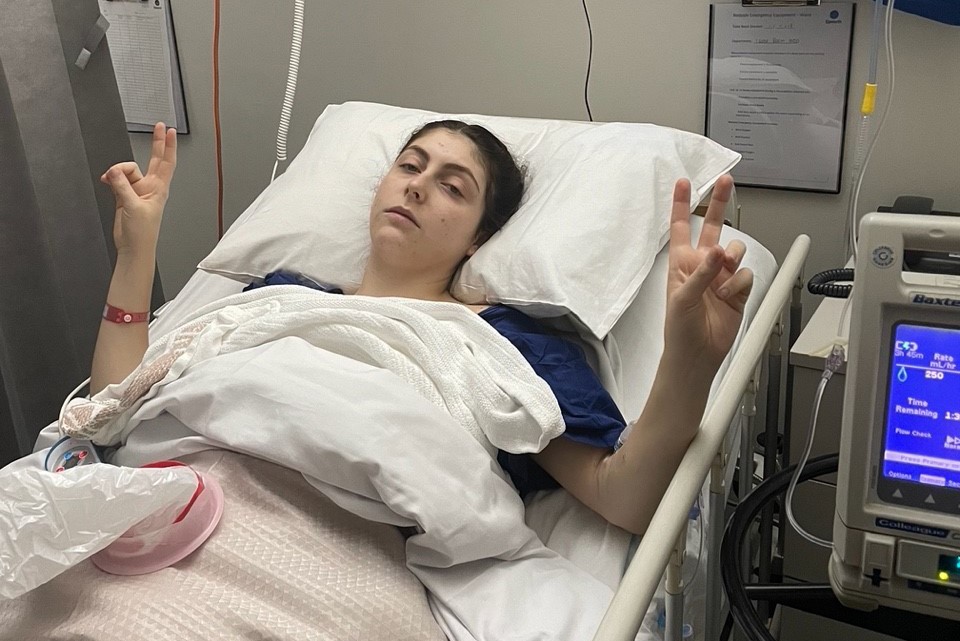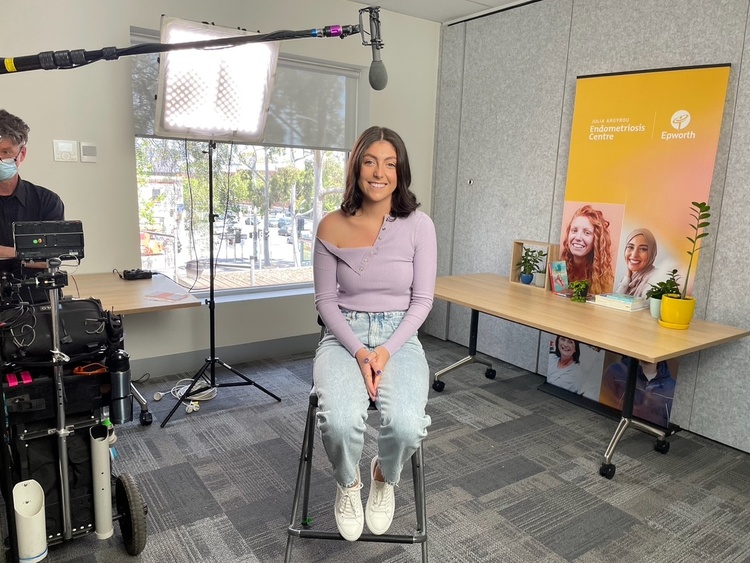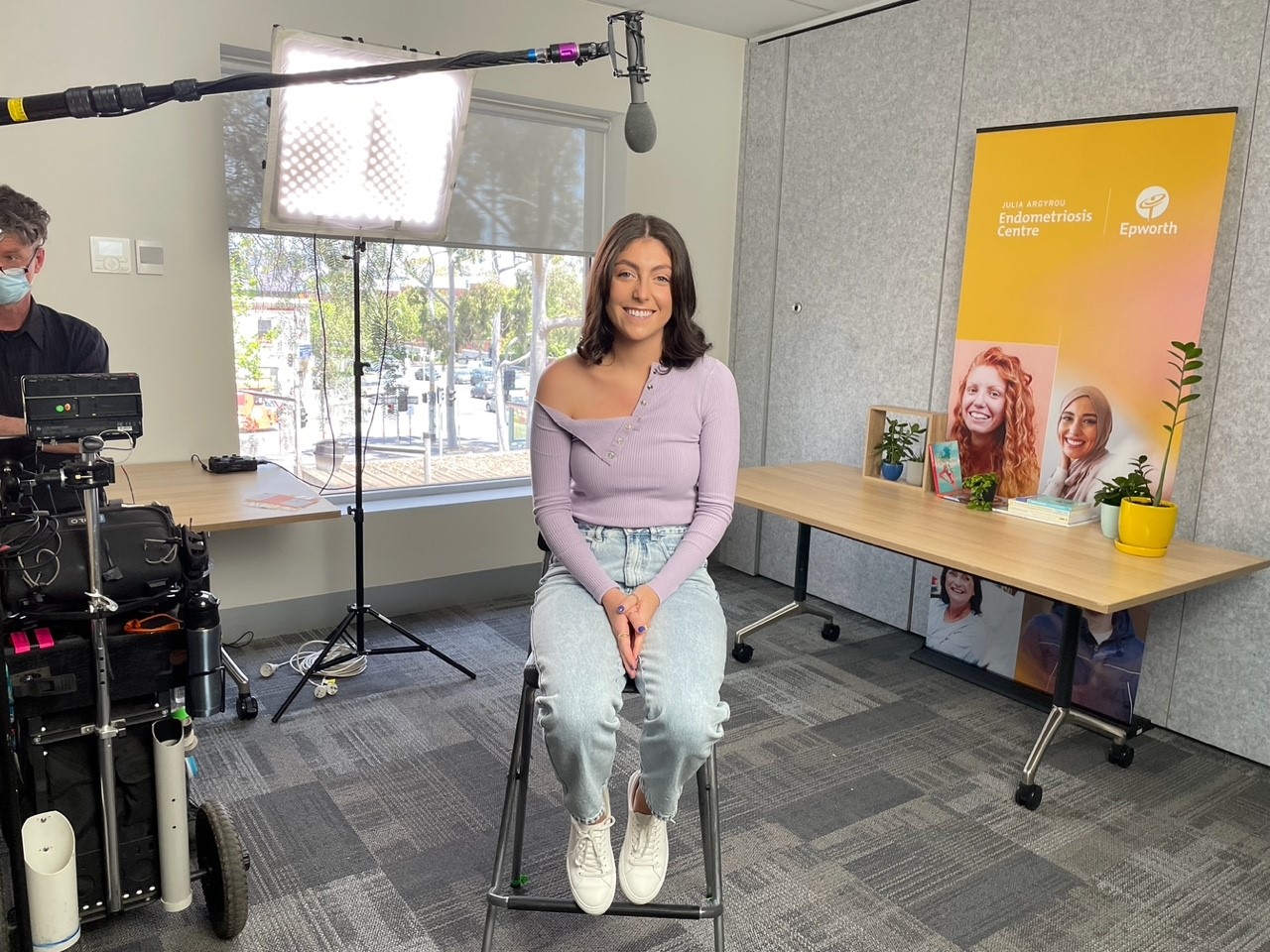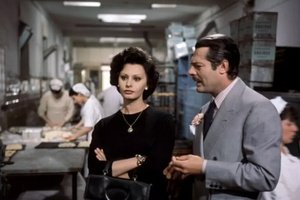The pain is understood by few, with its details rarely shared.
Details of loneliness, weakness, vulnerability.
One is often alone under the burden of an 'invisible' disease, an enemy companion with them for every hour of the day.
Endometriosis is a chronic benign inflammation of the female genitalia and pelvic peritoneum, caused by the abnormal presence of endometrial cells that, under normal conditions, are found only inside the uterus.
Intense period pain is often the first alarm bell, and very often, extends to the days before and after.
It is currently estimated that endometriosis affects one in nine Australian women, but this does not account for misdiagnoses or missed diagnoses; therefore, the actual number could be much higher.
For Endometriosis Awareness Month, the Victorian State Government has announced the opening of 20 new women's health clinics to provide medical care and advice on dealing with pelvic pain and menopause.
They will also double the number of surgeries for endometriosis and all its associated conditions, providing about 10,800 additional laparoscopies over the next four years.
They have also committed to providing $20,000 scholarships for 100 additional critical women's experts, and more specialised health care options.
Madeline Forster is a Melbourne resident with Italian origins.
Her maternal grandmother came from Licodia Eubea, in the province of Catania, and her grandfather from Condrò, in the province of Messina.
"The disease has had a defining impact" on her life, and forced her to develop qualities of resilience and adaptability.
“As a child, I was well,” recounted Forster.
“When I was in year seven, I was diagnosed with juvenile rheumatoid arthritis, which is an autoimmune dysfunction. I literally woke up one day and couldn't move my hand.
“Then in year 12 I started getting really chronic period pain. It got to the point where every month I couldn't get out of bed because the pain was so bad.”
Despite going to see her doctor, Forster’s condition had not yet been uncovered.
“She immediately prescribed me the contraceptive pill,” Forster explained.
“I was starting university and I remember the pill just stopped working. I was getting breakthrough bleeding.
“I went to see a gynaecologist and she said, ‘You're young, I really don't think there'd be anything wrong. Don't stress’.”
However, the pain did not stop, with Forster experiencing back pain, aching legs, migraines, going to the bathroom frequently, nausea and stomach cramps.
After consulting another specialist and undergoing a laparoscopy - a minimally invasive surgical technique that observes organs and tissues inside the abdomen and pelvis - to implant the Mirena contraceptive, Forster first heard the word 'endometriosis’.

Madeline Forster recovering after one of her operations
The doctor told her, however, that it was not serious enough to make a diagnosis.
Eleven months later, after an escalation of symptoms and a second operation, Forster ended up at Cabrini Hospital where she was diagnosed with rheumatoid arthritis in her back and stage three endometriosis.
“It was a very important moment because I felt validated,” recalled Forster.
For a lot of women, surgery can lead to side effects such as a decrease in reproductive potential.
As a result, Forster has begun an IVF course for egg freezing.
“They suggested I go into voluntary menopause, [my] ovaries were producing too much estrogen and it can increase the growth of endometriosis,” she explained.
“But I want to be a mum one day.”
Forster, now 25 years old, continues to struggle with the critical issues of a genetic disease that is invisible to many.
Driven by the need for change, she has joined the Julia Argyrou Endometriosis Centre, based in Epworth.
The centre aims to provide the best care for patients by improving current diagnostic options and working toward a cure.
Those with endometriosis in Australia are also laden with the financial burden of treatment.
The average cost of surgery is about $8,000: each ultrasound can cost as much as $500.
"I'm grateful for my family who never stopped supporting me,” said Forster.
“But in the last seven years I've realised how in other foreign countries, the UK for example, there are many more resources for responding to endometriosis.”
After last year's success, Madeline Forster has planned a charity walk at the Royal Botanic Gardens in South Yarra, scheduled for March 26.
She has already raised over $6000, tripling her 2022 pledge.
Meanwhile, she has started her coveted business, Mad About Fashion.
“There's not enough awareness within the working industries for people to be understanding of chronic illness,” she lamented.
“Mad about fashion will be a personal styling business where I want to empower women. I want to share ways and help people feel confident in what they wear.
“It’s my biggest goal – I don't want anyone to feel the way I felt.”
To contribute to the fundraiser, go to Endometriosis Australia.












